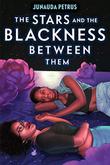The Coretta Scott King Book Award was established to honor outstanding books for young people by African American creators. First bestowed in 1970, the author award has since expanded to recognize illustrators, new talent, and lifetime achievement. Viewed within the context of this year’s movements for social justice, the 2020 acceptance speeches feel especially meaningful. Here are some words of wisdom from the middle-grade and YA fiction winners.
 Jerry Craft, who won the Coretta Scott King Author Award for his middle-grade graphic novel, New Kid (Harper/HarperCollins, 2019)—also the 2019 Kirkus Prize for Young Readers’ Literature winner—spoke about being a reluctant reader when he was young: “I was never exposed to stories about African American kids with the same hopes and dreams as everyone else.” His goal is to give African American kids books with “characters who expose them to a life that they can aspire to as opposed to always showing them ways to live without the things—material and immaterial—that other kids are always allowed to enjoy.”
Jerry Craft, who won the Coretta Scott King Author Award for his middle-grade graphic novel, New Kid (Harper/HarperCollins, 2019)—also the 2019 Kirkus Prize for Young Readers’ Literature winner—spoke about being a reluctant reader when he was young: “I was never exposed to stories about African American kids with the same hopes and dreams as everyone else.” His goal is to give African American kids books with “characters who expose them to a life that they can aspire to as opposed to always showing them ways to live without the things—material and immaterial—that other kids are always allowed to enjoy.”
The Coretta Scott King Author Honors went to Tristan Strong Punches a Hole in the Sky by Kwame Mbalia (Rick Riordan Presents/Disney, 2019), The Stars and the Blackness Between Them by Junauda Petrus (Dutton, 2019), and Look Both Ways: A Tale Told in Ten Blocks by Jason Reynolds (Caitlyn Dlouhy/Atheneum, 2019).
 Reynolds says his collection of middle-grade short stories was an attempt to “show the whole world that exists within Black childhood.” He points out, “I could have written this book forever” and still not included every possibility. “Yet all we seem to do is pigeonhole [Black kids] as the coolest kid in the room or the toughest kid in the room, when they should be able to be whatever they want. I think that’s where freedom truly is….Freedom to me is the autonomy of identity.”
Reynolds says his collection of middle-grade short stories was an attempt to “show the whole world that exists within Black childhood.” He points out, “I could have written this book forever” and still not included every possibility. “Yet all we seem to do is pigeonhole [Black kids] as the coolest kid in the room or the toughest kid in the room, when they should be able to be whatever they want. I think that’s where freedom truly is….Freedom to me is the autonomy of identity.”
Mbalia spoke about “writing a story that asks, how do we move through the world with grief and happiness, with horror and joy, with pain and with healing?” He reminisced about a childhood in which his parents fed him a diet of stories reflecting African and African American heritage that inspired his own middle-grade fantasy. “I am a river. I carry the blood, I carry the history, I carry the legacy…as I try to find my way to the sea where my people have long emptied the burdens they carry.”
 Petrus’ YA novel is a love story between two Black girls as well as a reflection on spirituality and mortality. In her acceptance speech she thanked the many young people she’s met in person and over social media who have described being affected by her book. Knowing the obstacles many face, she says, “I want to create spaces of healing and witness for them.” Petrus also credits the work of Whitney Houston for inspiring her as she wrote about “Blackness, queerness, [and] getting to be in the world as women in ways that are of our own agency and empowerment.”
Petrus’ YA novel is a love story between two Black girls as well as a reflection on spirituality and mortality. In her acceptance speech she thanked the many young people she’s met in person and over social media who have described being affected by her book. Knowing the obstacles many face, she says, “I want to create spaces of healing and witness for them.” Petrus also credits the work of Whitney Houston for inspiring her as she wrote about “Blackness, queerness, [and] getting to be in the world as women in ways that are of our own agency and empowerment.”
John Steptoe Award for New Talent Author winner Alicia D. Williams, who wrote Genesis Begins Again (Caitlyn Dlouhy/Atheneum, 2019), a Kirkus Prize finalist, says many people called her “brave” for writing this middle-grade novel because “colorism is a topic that we swept under the rug—we’re guilty of it, every colonized country—yet we don’t correct it, kill it or change it. We pass it down, generation to generation, like an heirloom.” She feared criticism for writing about this difficult subject but thought about the impact on children who might “question what beautiful is and define it on their own.”
Laura Simeon is a young readers’ editor.



































